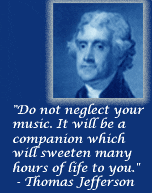
Encores and the unfiltered expectation
By Ralph Graves
Anne Midgette wrote a piece recently on encores (which itself has been encored throughout the classical music world). In light of the revelation that program notes can get in the way of audience enjoyment, I found one of her observations particularly interesting.
As you may recall, an article in the journal Psychology of Music by Elizabeth Hellmuth Margulis came to this conclusion:
Results showed a significant negative effect of description, suggesting that prefacing an excerpt with a text description reduces enjoyment of the music. Conceptualizing listening by connecting it to linguistically named correlates (a practice fundamental to music training) may have more multifarious (and not always straightforwardly beneficial) effects on musical experience than commonly assumed.
Now keep in mind as you read Midgette’s observation:
Departing from the printed program, [the encore] gets listeners to sit up and take notice, speculating on what’s to come, trying to figure out what they’ve heard. In a way, it puts the audience into a more active role. I’m struck by how many people want to possess the encore, rather than the body of the recital; many people write after a concert to say they want to buy the music they last heard. I think there may be a sense of ownership involved in hearing music without intermediary, working to identify it.
What’s your experience with encores? Is it the best part of the concert? Something special? Or does it serve another purpose for you?

